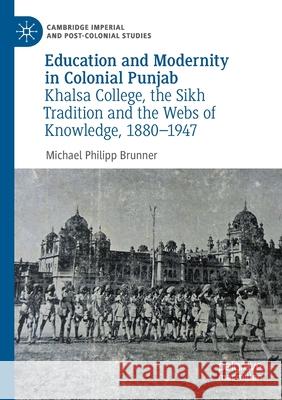Education and Modernity in Colonial Punjab: Khalsa College, the Sikh Tradition and the Webs of Knowledge, 1880-1947 » książka
topmenu
Education and Modernity in Colonial Punjab: Khalsa College, the Sikh Tradition and the Webs of Knowledge, 1880-1947
ISBN-13: 9783030535162 / Angielski / Miękka / 2021 / 304 str.
Education and Modernity in Colonial Punjab: Khalsa College, the Sikh Tradition and the Webs of Knowledge, 1880-1947
ISBN-13: 9783030535162 / Angielski / Miękka / 2021 / 304 str.
cena 443,82
(netto: 422,69 VAT: 5%)
Najniższa cena z 30 dni: 424,07
(netto: 422,69 VAT: 5%)
Najniższa cena z 30 dni: 424,07
Termin realizacji zamówienia:
ok. 22 dni roboczych.
ok. 22 dni roboczych.
Darmowa dostawa!
Kategorie BISAC:
Wydawca:
Palgrave MacMillan
Język:
Angielski
ISBN-13:
9783030535162
Rok wydania:
2021
Ilość stron:
304
Waga:
0.40 kg
Wymiary:
21.01 x 14.81 x 1.73
Oprawa:
Miękka
Wolumenów:
01
Dodatkowe informacje:
Wydanie ilustrowane











